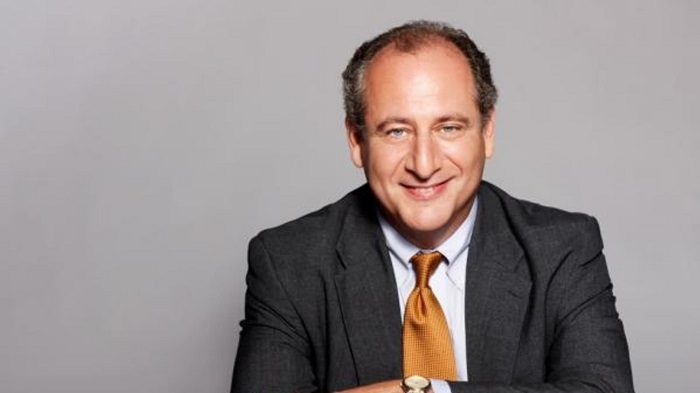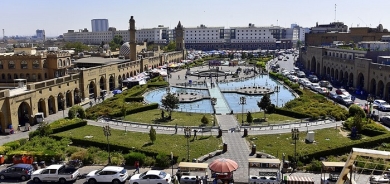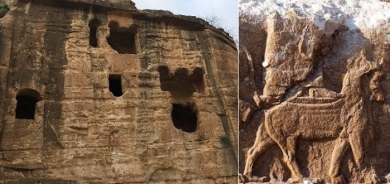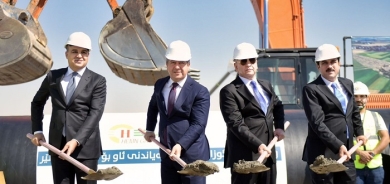TALK ABOUT THE NAKBA – AND THE HOLOCAUST

By David L. Phillips*
Dialogue is critical to defusing the crisis at Columbia University and improving relations between Jews and Palestinians. Absent dialogue that engages students in a process that works towards common ground, the conversation will be dominated by extremists with little interest or empathy towards “the other”. A historical dialogue focuses on the past to promote mutual understanding about what happened and thereby mollify passions in the present. It is a tested technique in conflict resolution relevant to today’s stand-off on campus.
Historical dialogue focuses on an event that defined the construction of national identity for communities in conflict. Through a fact-based approach, it addresses ignorance that is fertile ground for radicalization by giving voice to groups whose national identity is rooted in history.
The Nakba means “The Catastrophe” in Arabic. It was a period of tremendous tragedy and collective trauma for the Palestinian people; 750,000 were displaced in the 1948 Palestine War. The Nakba refers to the destruction of Palestinian society, culture and identity. It also refers to the destruction of Palestinian national aspirations, as Palestinians fled their homes and villages seeking security from Jewish settlers who themselves were traumatized by the Holocaust.
More than a historical event, the Nakba refers to the ongoing oppression of Palestinians who are denied the right of return as refugees. It defines the Palestinian national identity, born in pain and loss. Palestinians observe May 15 as “Nakba Day”. The upcoming anniversary represents an opportunity to discuss the events in 1948, memorialize the suffering of Palestinians, and recommit to social justice for the Palestinian people, as well as Israel’s security.
The Nakba did not occur in a vacuum. The 1917 Balfour Declaration enshrined Zionist aspirations in a statement of British support for “the establishment in Palestine of a national home for the Jewish people.” The Zionist movement gained impetus after the Holocaust during which 6 million Jews perished in Nazi death camps. Many survivors resettled in Palestine as a sanctuary where the Jewish community, decimated by war, could heal. On 29 November 1947, the General Assembly passed Resolution 181, the United National Partition Plan for Palestine, endorsing a two state solution envisioning the creation of the state of Israel living peacefully alongside a state of Palestine.
However, Palestinians, who made up approximately two-thirds of the population and owned almost all of the land, rejected Resolution 181. The Arab Higher Committee, the Arab League, and Arab leaders rejected territorial division, claiming that national self-determination in the UN Charter gave them the undisputed right to decide their future. The UN partition plan was far from equitable. When Palestinians rebelled, Israeli nationalists drove Palestinians from their homers, committing ethnic cleansing.
Few Jews appreciate or even know about the historical context of Israel’s emergence as a member of the international community. Fewer still have information on the Nakba and the suffering of exiled Palestinians. Likewise, few Palestinians know about the circumstances that gave rise to the State of Israel.
Having worked as director of the Elie Wisel Foundation for Humanity, I appreciate how the experience of the Holocaust is seared in the consciousness of survivors. The Holocaust was a defining event in the collective Jewish psyche. Israel was born from the ashes of death camps and the suffering of Jewish people.
May 15 represents an opportunity for Israelis and Palestinians to have a historical dialogue sharing their experience. A dialogue would go a long way to addressing historical grievances, whereby Jews and Palestinians cultivate empathy as a bridge to a more peaceful future.
More than mutual understanding, May 15 could explore confidence building measures institutionalizing the dialogue at Columbia, on campuses, and society at large. It may be difficult to envision a historical dialogue under today’s circumstances. However, the alternative is continued recrimination and escalating violence.
The memories of displaced Palestinians and murdered Jews would be well served through a managed process, exchanging information and exploring cooperation. Campus protests are a plea for recognition by those who feel forgotten and ignored. Today, there is an opportunity to move from a tragic shared history, towards a future where rights and development define communal relations between Israelis and Palestinians.
*(Mr. Phillips is the former director of Columbia University’s Program on Peacebuilding and Human Rights and founding director of the University’s Conflict Resolution Program. He is presently an adjunct professor at Georgetown University’s School of Foreign Service.)

 Gulan Media
Gulan Media







